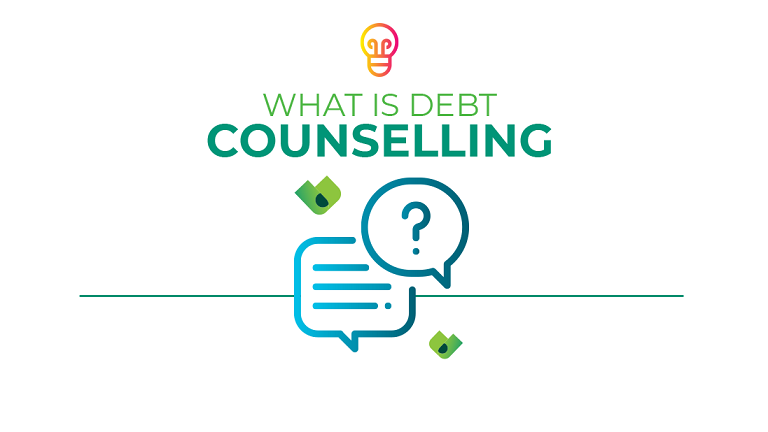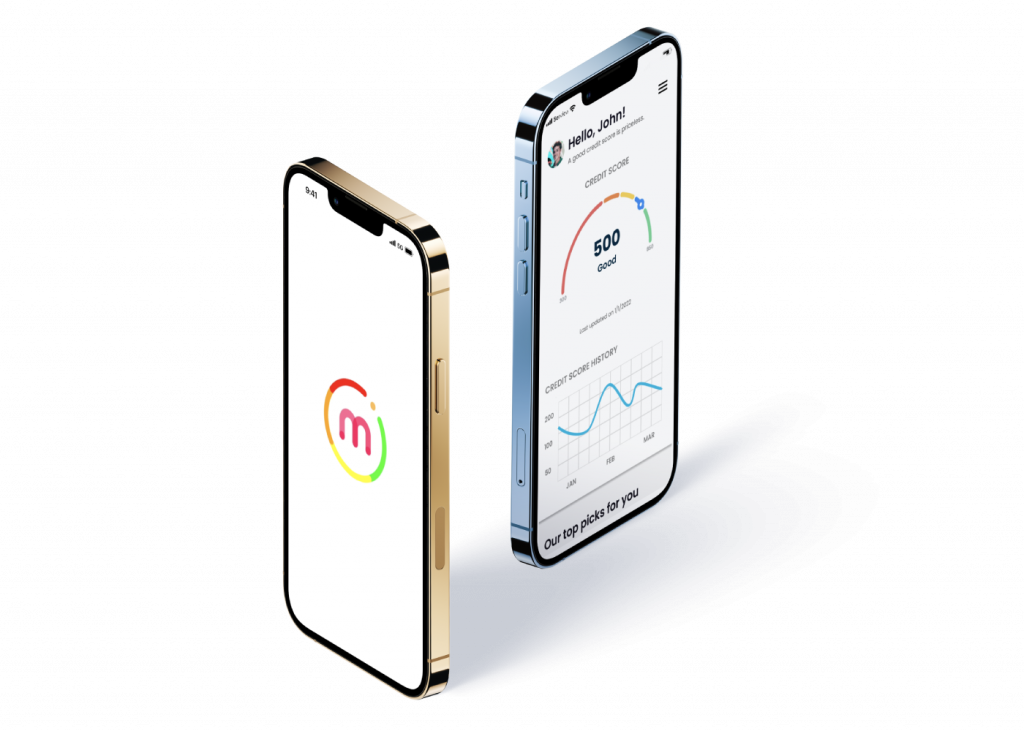Debt Counselling
What is Debt Counselling & How it works?
What is Debt Counselling & How it works?
By The National Debt Review Center
Debt Counselling is a legal program that is aimed at assisting over-indebted South African consumers who are struggling with their debt repayments. This program is regulated by The National Credit Regulator as per The National Credit Act.
Debt Counselling or Debt Review is a legal process that is designed to help over-indebted South Africans regain control of their finances by restructuring their debt according to a legally approved plan.

Who can apply for debt counselling?
South African residents can potentially benefit from this financial lifeline thanks to a piece of legislation called the National Credit Act of 2005 (NCA for short). The NCA created the concept of ‘debt counselling or debt review’ to help people who could not find any other way of coping with substantial money problems. This is called ‘over-indebtedness’ and means a situation in which your debts have become too large – or too many – to tackle without help. If this is you apply online for a free assessment here.
Consumers who are struggling to meet their monthly debt obligations qualify to apply for debt counselling. These consumers should have a distributable income, which will be used to offer reduced payments to their credit providers. Consumers married in community of property must jointly apply for debt counselling.
What does debt counselling involve?
The first step is to acknowledge that you are ‘over indebted’ and that you need this assistance. You apply for the help, and if you are eligible, a debt counsellor is appointed to help you do a full debt review. Your debt counsellor will also handle all discussions with your creditors, who can no longer contact you directly.
Once a practical repayment plan for your debts has been created, your debt counsellor gets a court order to make it all official. While this is happening, you are protected from legal action by any of the organisations you owe money to (called your creditors).
This is for a period of 60 days from your application date. This is your ‘breathing space’ to find a workable resolution, but you must be prepared to follow through on any arrangements that are made.
What are the benefits of debt counselling?
Having the advice and help of a debt counsellor is an excellent way to manage the situation when you’re overburdened by debt. Remember, they also handle discussions with creditors, so they bring their professional insights into the mix. Your debt counsellor will work with you, and your creditors, to find a way to set up a repayment system that is equitable (balanced) with a realistic amount you can afford to pay each month.
One of the advantages is that you will have enough money each month for normal living expenses such as food and rent, which can be a big relief.
Debt Counselling Benefits.
- All of your debt repayments will be consolidated into one reduced monthly repayment plan.
- Your assets, including your home and car, will be protected from repossession.
- You will no longer get calls from your creditors demanding payment.
- There is no permanent record of having undergone debt counselling.
- There is only one monthly repayment to be made.
- Your budget will meet your basic needs first before provision is made for debts.
- You will never pay more money than you can reasonably afford.
- A debt counsellor will suggest ways of cutting costs and saving money.
- Gives you Peace of Mind that your debt is being paid.
- Help You Live Comfortably with all living expenses covered.
- Help You Reach Your Goal of settling the debt.
- It helps you Change your financial spending behaviour.
- You do not pay any money upfront.
What are the steps to apply for debt counselling?
Complete our Free Online Debt Assessment Form or book for a consultantion.
Book Here
- It’s free of charge and only takes a few minutes.
- Complete our online debt assessment and provide us with the details of your financial situation.
- Submit all required documents for the initial assessment. (i.e your ID, Payslip, Bank Statements, Letter of Demands, etc).
We’ll assess and determine.
- A Registered Debt Counsellor will determine whether your monthly expenses and debt exceed your monthly income.
- A new monthly budget is made which covers all basic needs.
You’ll be placed under Debt Counselling or Debt Review.
We’ll inform all your Credit Providers and the Credit Bureaus that you are under Debt Review.
You only pay a single, reduced payment, which you can afford!
- We’ll restructure your payment plan and negotiate with your Credit Providers.
- This new restructured payment is paid via a registered payment Distribution Agency.
The Application will be prepared for court and finalised.
- Our attorneys will apply at the court to make your restructured payment plan a court order.
- You will be required to sign and submit a confirmatory affidavit.
While undergoing Debt Counselling, you will be protected against legal action taken by your Credit Providers and only have to pay one monthly, affordable reduced payment, leaving you with enough money for your monthly expenses
How does it affect future lending?
It is important to note that if you take this route, you will be officially listed with the Credit Bureau as someone who is using debt counselling. This puts limits on any future lending activities.
You will not be able to take out new loans or create new debts until you have a Clearance Certificate. This shows that you have met all the conditions and obligations placed on you by the Court or Tribunal order; and that you have satisfied all the conditions outlined in the National Credit Act.
Many people using debt counselling find themselves debt-free, with a ‘clean slate’ on their credit rating, after around 60 months.
How much does debt counselling cost?
This is not free help to manage your debts. However, the National Credit Regulator has set a level for fees for this service and issued registered providers with guidelines on what they can charge for. The cost of this help needs to be weighed against the likely financial problems if your over-indebtedness goes on for too long.
One of the most frequently asked questions we get on a daily basis is what are the Debt Counselling Fees?
Debt Counselling is a formal legal process, which is governed by the National Credit Act. Your monthly debt repayment amount is specific to your situation and how much you owe on your debt in total. Debt Counsellors are permitted by the NCR to charge certain fees which include:
Application Fee
This is a flat fee to cover the costs of the debt counsellor to process the completed debt Review application.
Regulated Cost – R50
Payment Due Upfront and in full.
Administration Fee
The Debt Review administration fee is a regulated once-off flat fee that gets charged by the debt counsellor. This fee is for administering the following processes:
- Consultation with the consumer. The consultation is the explanation of the Debt Review process and an explanation of the regulated fees.
- Notifications to credit providers advising them that the consumer has applied for debt review. Also, known as the Form 17.1 Process
- Capturing the consumers’ details on the NCR Debt help system
- Attending to any debt Review rejections (17.2 rejection) which will include
- Notifying the consumer and credit providers and the rejection
- Updating the NCR Debt help system
- Compliance with regulation 25. Regulation 25 of the National Credit Act: If a debt counsellor finds that a consumer is not over-indebted and makes a finding in section 86(7)(a), the debt counsellor must provide the consumer with a letter of rejection
Regulated Cost – R300
Payment Due Upfront and in full.
Debt Counselling Restructuring Fee.
The Fees under debt counselling are aligned to the outcomes of a full assessment of the consumers’ financial information and the following processes include:
- Proposal preparation for credit providers’ perusal
- Restructure the consumers’ debt on the debt counsellors PDA profile
- Negotiations with creditor providers which includes
- Negotiate reduced instalments
- Negotiate reduced interest rates
- Reduce or change insurances
- Submit final proposals to credit providers and the consumer
- Drafting, submitting and supplying of debt counselling documents to attorneys to draft court applications.
- Updating the NCR Debt help system
- Attend to any transfer request from consumers
- Attorney instruction to draft court applications
- Filling of NCT applications in the cases of consent orders
- Attending to withdrawal request from consumers (17.W process)
Costs – The restructuring fee is equal to the distributable amount of not more than R8000 for a single applicant and R9000 for consumers married in community of property
In other words, the first restructured instalment will get paid to the debt counsellor. The above limits apply
Payment Due: This first payment will get paid over to the debt counsellor for services rendered.
Reckless lending fee.
A debt counsellor will attend to Reckless Lending Assessments and investigations and supplying reckless lending documents to attorneys to draft affidavits on the assessment outcome
Cost R1500
After Care Fee.
Debt counsellors will track your debt counselling progress and attend to the following while you under debt review.
- Form 17.2
- Review of the consumers’ financial situation
- Attend to any payment queries
- Attend to the clearance process which includes securing paid up letters
- Attend to the 17. W process. (withdrawal from debt counselling by the consumer)
- Attending to the update of the NCR debt help system
Costs: 5% of the distributable amount or an amount of not more than R450 per month.
Aftercare fees will never exceed R450. If the amount exceeds R450pm query the amount with the debt counsellor and the NCR.
Payment Due monthly will get deducted from the debt Review restructured amount.
National Consumer Tribunal Submission Fee.
A debt counsellor will submit your debt counselling application with the NCT to get a consent order.
Costs R800 once-off and this is excluding the NCT filling fee. Currently, the NCT filing fee.
Attorney Fees
equivalent to your monthly debt rehabilitation amount for your legal application to the Magistrate Court.
A monthly Transactional Payment Distribution Fee (PDA) as per the NCR
Is debt counselling the right choice for you?
If you answer ‘Yes’ to these three questions, it is worth chatting to a debt counsellor:
- Do you have multiple loans with different credit providers, eg a home loan, car loan, personal loans and multiple credit and store cards?
- Is it impossible to keep up with your monthly debt obligations despite the fact that you earn a regular income?
- Are you behind on payments on a number of accounts?
What are the overall objectives of a Debt Counsellor?
- Assess the full extent of your debt situation
- Assess your assets that may be taken into account
- Provide a debt remedy that:
- Provide you with an acceptable standard of living while repaying your debts according to your affordability – this includes retaining the home and a vehicle where possible;
- Provide you with an agreed, affordable and realistic monthly budget in order to resolve the situation in the shortest possible time;
- Provide a repayment scheme acceptable to your creditors and confirmed by the Court;
- Prevent repossession of assets where possible;
- Rehabilitate you without detriment for the future; and
- Allow you to get on with your life.
The overall objectives for YOU should be:
- To work honestly and openly with the debt counsellor;
- Declare all assets and liabilities – including all incomes and debts, and including bonuses and salary increases;
- To pay the fees as disclosed at the first meeting;
- To adhere to the agreed instalments and to pay these at the agreed dates;
- To keep in regular contact with the debt counsellor; and
- To agree and commit to the debt remedy – this may include surrendering credit cards, closing accounts and realising some assets.
The overall objectives for your CREDITORS should be:
- To work with the debt counsellor to assist in the normalization of the debt;
- To favorably consider the repayment proposal;
- To ensure the consumer is assisted in a fair and unbiased way throughout the process of repayment;
- To assist the consumer to rehabilitate as soon as possible; and
- To assist the consumer to restore his/her creditworthiness as soon as possible.
What happens during your initial visit to the debt counsellor’s office?
- Provide a copy of your identity document/passport
- A copy of your most recent salary/wage slip (If you receive overtime or allowances that are not of a regular nature then the last 6 months are required to determine an average)
- Your most recent creditor statements and credit cards
- Your last three months bank statements for all your bank and investment accounts
- Your last two months credit card statements for each of your cards
- Your latest statement reflecting your home loan balance
- A list of other debts from friends or family members
If you and your spouse/partner share your income and expenses or are married in Community of Property then:
- A copy of your spouse/partner’s most recent salary/wage slip (if you receive overtime or allowances that are not of a regular nature then the last 6 months are required to determine an average)
- Your most recent creditor statements and credit cards
- Your last two months bank statements for all your bank and investment accounts
- Your last two months credit card statements for each of your cards
The debt review assessment process / outcome / notification – Explained
- When a consumer applies for Debt Review, a debt counsellor is required to inform all credit providers and credit bureaux of the application within 5 business days after accepting the application.
- Within 5 business days of receiving this notification (which is done by means of a “Form 17.1” sent to the credit providers and credit bureaux by the debt counsellor), the Credit Provider is required to provide a Certificate of Balance (COB) providing the debt counsellor with account information required for the assessment. This information assists the debt counsellor to do an accurate affordability assessment, and thereafter provide an accurate declaration of whether the consumer is over-indebted.
- The debt counsellor should conduct an assessment in accordance with the NCA regulations to determine if the consumer is over-indebted and to determine the amount available to repay debt.
- If the consumer is found by the debt counsellor not to be over-indebted or not to be legally eligible for debt review, the debt counsellor will reject the application and send a “Form 17.2” to the credit providers and Credit Bureaux, marking the paragraph that confirms that the consumer is not over-indebted.
- If the consumer is found by the debt counsellor to be over-indebted and legally eligible to be under debt review, the debt counsellor should, within 30 days of the consumer’s application notify both the Credit Provider/s and the Credit Bureaus that the consumer is indeed over-indebted and the debt counsellor will inform all parties by means of the “Form 17.2” notice, marking the appropriate paragraph that confirms over-indebtedness.
What are Payment Distribution Agents?
Once accepted under debt counselling you will pay one instalment which will then be distributed to your credit providers by a Payment Distribution Agent. The PDA is also responsible for the provision of monthly statements to consumers and payment schedules to debt counsellors, employers and credit providers as well as attending to queries from the respective parties. As a consumer, you can choose to continue to pay your creditors directly and not use a PDA.
If you opt to make direct payments you should be aware of the following:
- You remain responsible to make all payments as re-arranged, in full and on time.
- Proof of payments must be sent to the debt counsellor on a monthly basis for record-keeping and to enable the provision of aftercare service as a consumer cannot be under debt review without a debt counsellor.
- Consequences of making short or late payments(e.g. risk of termination by credit providers)
- Debt counselling fees are payable to a debt counsellor for services rendered and this includes payment of aftercare fees.
- For a debt counsellor to issue a clearance certificate, all aftercare fees must be up to date.
- Where the debt counsellor has suspended the provision of service, a consumer must provide proof of settlement letters from credit providers for a debt counsellor to issue a clearance certificate.
Termination (Cancellation) of Debt Review
Under certain circumstances, a credit provider can withdraw a credit agreement from debt counselling (Terminate) and proceed with legal action. Termination can happen if you default on your debt counselling payments or if your debt counsellor does not finalise the process within the prescribed time limits.
learn more about debt review removal here.
Debt Review Clearance Certificates
In terms of section 71(2)(b)(i) of the NCA, a debt counsellor must issue a Clearance Certificate (Form 19) if the consumer has fully satisfied all the debt obligations under every credit agreement that was subject to the debt re-arrangement order or agreement. Once a Clearance Certificate has been issued Credit Bureaus will be required to remove all the information relating to debt counselling and you can then start getting credit again.
The National Credit Amendment Act now allows you to finish debt counselling early after you have settled your unsecured loans and cleared your arrears on the Home loan. It prescribes that:
(1) A Consumer whose debts have been re-arranged in terms of Part D of this Chapter must be issued
with a Clearance Certificate by a Debt Counsellor within seven days after the Consumer has –
(a) Satisfied all the obligations under every credit agreement that was subject to that debt Re-arrangement order or agreement in accordance with that order or arrangement; or
(b) Demonstrated:
(i) Financial ability to satisfy the future obligations in terms of the re-arrangement order or
agreement under-
(aa) a mortgage agreement which secures a credit agreement for the purchase or improvement of immovable property; or
(bb) any long term agreement as may be prescribed;
(ii) that there are no arrears on the re-arrangement contemplated in subparagraph (i);
and
(iii) that all obligations under every credit agreement included in the re-arrangement order or
agreement other than those contemplated in subparagraph (i), have been settled in full.
Withdrawing from Debt Counselling
It is very important that you think very carefully about going under debt counselling because once you have been declared over-indebted and accepted into the process it will be very difficult to withdraw from the process and even more difficult to remove the Debt Counselling flag from your credit bureau record. Below is an extract from the Guideline:
CAN A DEBT COUNSELLOR TERMINATE OR WITHDRAW DEBT REVIEW PROCESS?
A debt counsellor does not have statutory powers to terminate or withdraw the debt review process. This means that a debt counsellor can no longer issue Form 17.4 and update DHS with status G (Voluntary withdrawal by consumer) or H (Withdrawal by a debt counsellor). There is However varied ways in which a consumer can be withdrawn from debt review which will be set out below.
CAN A CONSUMER WITHDRAW FROM DEBT REVIEW PROCESS ONCE A DEBT REVIEW COURT ORDER HAS BEEN OBTAINED?
Once a debt review court order has been obtained a consumer cannot terminate or withdraw the debt review process, they can however approach the court to rescind the order or apply for an order which declares that the consumer is no longer over-indebted. Upon receipt of the order, a debt counsellor will notify the credit providers of the withdrawal by means of Form 17.W and update DHS with status G.
CAN A CONSUMER WITHDRAW OR TERMINATE DEBT REVIEW PROCESS PRIOR TO OBTAINING DEBT REVIEW COURT ORDER?
Consumers can only withdraw or terminate the debt review process prior to the declaration of over-indebtedness as per section 86(7) of the Act and issuance of Form 17.2 subject to payment of debt counselling fees as per NCR Debt Counselling Fee Guidelines. If a determination is made and no court order is in place, the consumer will remain under debt review. A debt counsellor will notify the credit providers of the withdrawal by means of Form 17.W and update DHS with status G.
CAN A CONSUMER BE TRANSFERRED TO ANOTHER DEBT COUNSELLOR?
A consumer under debt review may be transferred to another debt counsellor subject to payment of all debt counselling fees where it has been established that the previous debt counsellor followed the correct process. • Form 17.7 should be used to facilitate this process.
Debt Counselling cons or disadvantages.
- You are not allowed to have more credit while undergoing debt counselling
- It does cost a little bit of money, but the fees are set by law
- Your debts might take longer to pay off as a result of paying smaller amounts each month
How long does debt counselling take?
Debt counselling usually lasts between three to five years, depending on how much debt you need to repay. It’s your debt counsellor’s job to negotiate and determine what you can afford to pay each month.
Throughout the process, your debt counsellor’s service staff are available to offer you advice or support and communicate with your creditors.
What if you are unemployed?
The debt counselling programme is for consumers who can provide proof that they can afford the lower monthly instalments that are afforded by the programme. However, if you are unemployed but married in community of property, you can jointly apply for debt counselling with your spouse.



